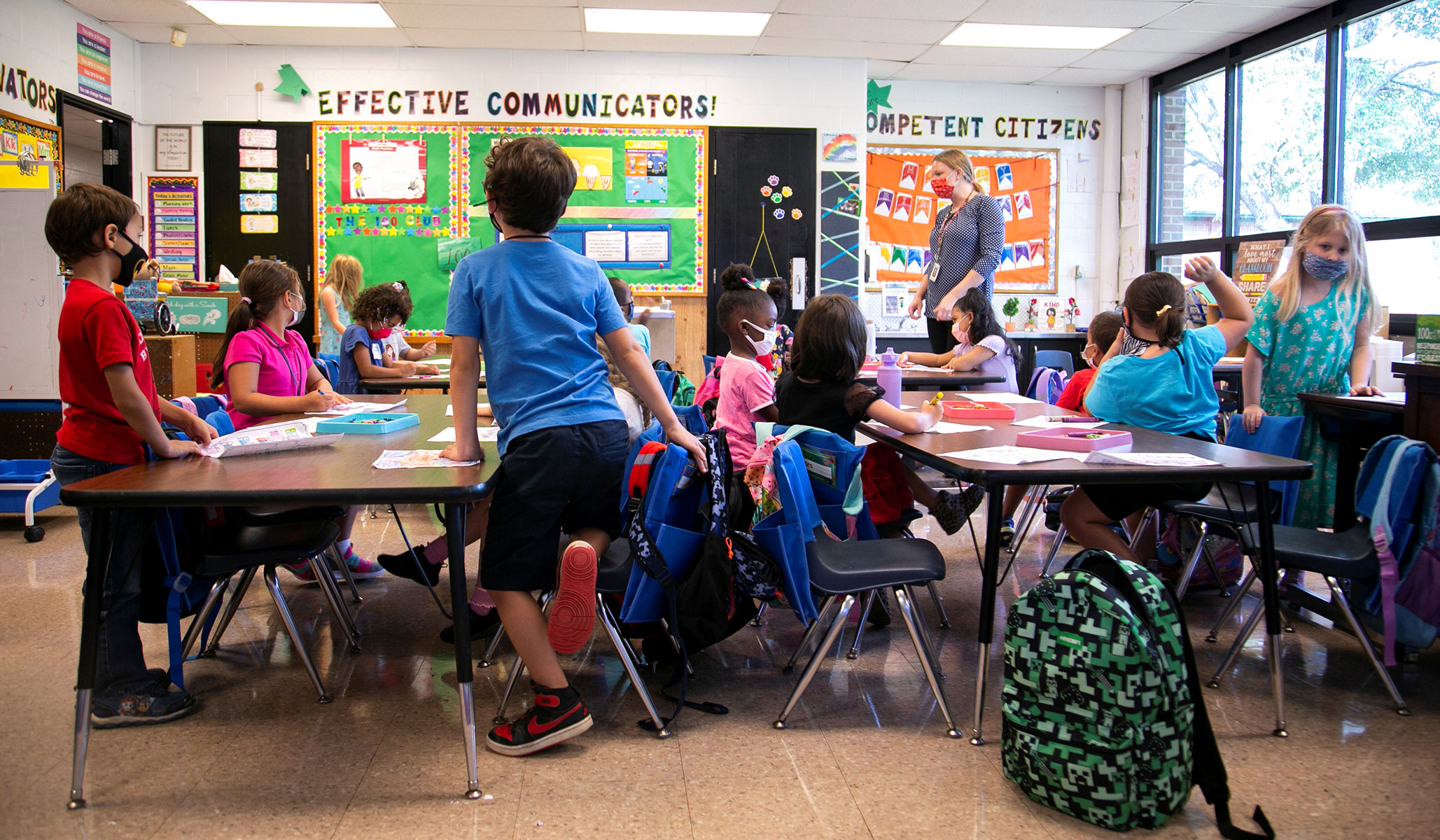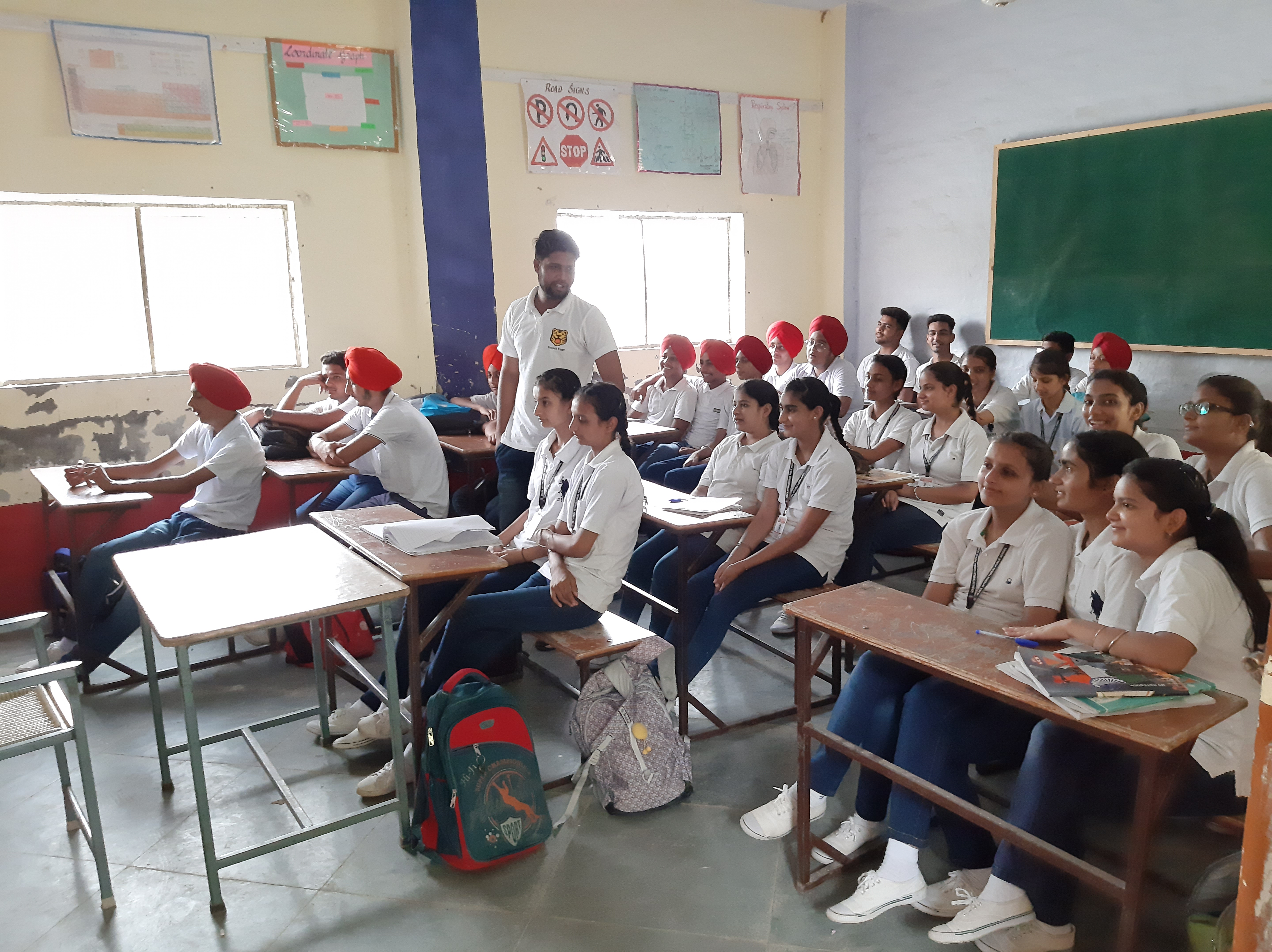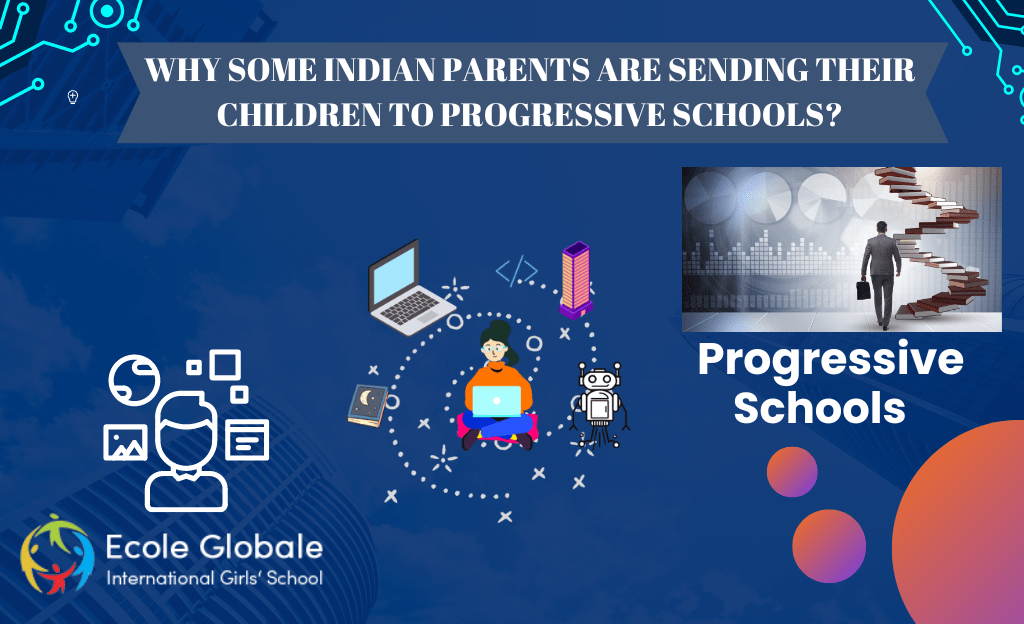In recent years, there has been a growing trend of Indian parents sending their children to progressive schools. These schools emphasize student-centric learning and focus on holistic development rather than just academic excellence. In this blog post, we will explore the reasons behind this trend and how progressive schools are changing the education landscape in India.
WHAT ARE PROGRESSIVE SCHOOLS?

According to the Boarding schools in India, Progressive schools are a type of educational institution that prioritizes student-centered learning, interactive learning, and holistic development over traditional rote-based learning. The fundamental principles of progressive education highlight the significance of innovation, critical thinking, and creativity.
They focus on the following key features:
- Active learning
- Collaborative learning
- Child-centered learning
- Emphasis on creativity and innovation
- An inclusive and safe learning environment
WHY PROGRESSIVE SCHOOLS ARE WINNING OVER INDIAN PARENTS?

Holistic development:
Progressive schools focus on the holistic development of the child, including physical, emotional, and social development. This approach resonates with Indian parents who are increasingly concerned about the mental and emotional well-being of their children.
Emphasis on creativity and innovation:
Progressive schools encourage creativity and innovation, which is increasingly important in a rapidly changing world. Indian parents recognize that their children need to develop skills beyond academics to succeed in the future.
Focus on experiential learning:
Progressive schools emphasize experiential learning, which is a departure from the traditional approach of rote learning. Indian parents value experiential learning as it helps children develop critical thinking and problem-solving skills.
Learning in a safe and inclusive environment:
Progressive schools provide a safe and inclusive learning environment that promotes acceptance and diversity. This is appealing to Indian parents who value cultural diversity and inclusivity.
Exposure to diverse perspectives and cultures:
Progressive schools encourage exposure to diverse perspectives and cultures. This is important for Indian parents who want their children to be globally aware and have a broad understanding of the world.
ADVANTAGES OF PROGRESSIVE SCHOOLS

Development of critical thinking and problem-solving skills:
As per research conducted by Schools in India, Progressive schools prioritize the development of critical thinking and problem-solving skills, which are essential for success in today’s rapidly changing world. By focusing on creative and innovative approaches to problem-solving, children are better prepared to tackle challenges and adapt to new situations.
Improved communication and interpersonal skills:
Collaborative learning and communication skills are emphasized in progressive schools. These skills are essential for success in the real world, where teamwork and effective communication are key to achieving goals. By encouraging children to work together and communicate effectively, progressive schools help students develop strong interpersonal skills.
Encouragement of individuality and creativity:
Progressive schools encourage individuality and creativity, recognizing that each child has their own unique strengths and talents. By fostering an environment that celebrates diversity and uniqueness, children develop a strong sense of self and the ability to think outside the box. This can lead to increased self-confidence and a greater willingness to take risks.
Preparation for real-world challenges:
Progressive schools aim to prepare children for real-world challenges by providing them with a range of skills beyond academic excellence. This includes problem-solving, communication, and interpersonal skills. Children learn to adapt to different situations and think creatively to find solutions to challenges they may face in the future.
Enhanced self-confidence and self-awareness:
Progressive schools help children develop a strong sense of self, self-awareness, and self-confidence. By encouraging children to explore their interests and passions, they gain a greater understanding of their strengths and weaknesses. This can lead to improved mental and emotional well-being, which is crucial for success in the long term.
HOW PROGRESSIVE SCHOOLS ARE CRITICIZED: CHALLENGES AND ISSUES

Reduced Emphasis on Academic Excellence:
Critics contend that progressive schools’ reduced emphasis on academic excellence may adversely affect children’s future prospects. They argue that while holistic development is important, children must also excel in academics to succeed in a highly competitive world.
Resistance from Traditional Education Systems:
Progressive schools face resistance from traditional education systems that often view them as deviant and ineffective. These systems tend to follow a standardized curriculum and prioritize grades and test scores over holistic development.
Parental Expectations and Peer Pressure:
Some parents may feel pressure from their social circle to send their children to traditional schools that emphasize academic excellence over holistic development. This may lead to parents feeling uncertain about sending their children to progressive schools, even if they believe in their underlying philosophy.
Financial Constraints:
Progressive schools often require more resources to provide experiential learning opportunities, individualized attention, and a safe and inclusive environment. This may lead to increased fees, making it challenging for parents from economically weaker sections to afford admission for their children.
Lack of Regulation:
The lack of regulation in the progressive education system may lead to inconsistencies in the quality of education provided by different schools. This may result in a negative impact on students’ learning outcomes and hinder the growth and development of the progressive education movement as a whole.
CONCLUSION
Indian parents are increasingly choosing to enroll their children in progressive schools due to the numerous benefits they offer. These benefits include the development of crucial skills such as critical thinking, problem-solving, communication, and collaboration, which are essential for success in the real world.
While it faces some challenges and criticisms, such as the lack of emphasis on academic excellence, resistance from traditional education systems, and parental expectations, they continue to gain popularity due to its focus on holistic development and preparing children for the challenges of the future. Parents should carefully consider the advantages and disadvantages of progressive education and make informed decisions about their children’s education to ensure their long-term success.






